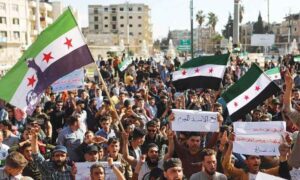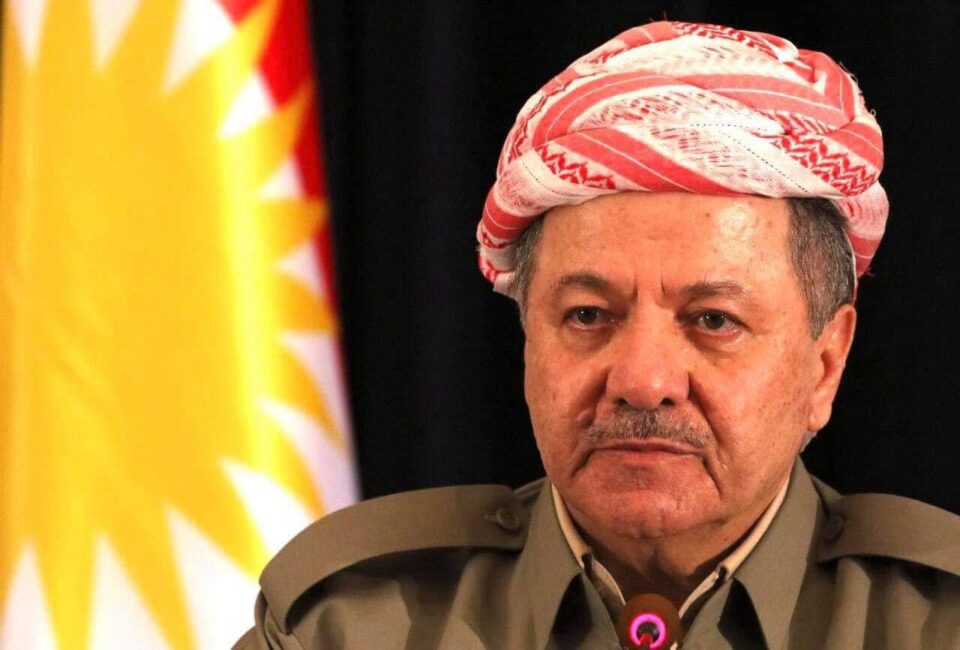Syria’s regime fall: Challenges for Kurdistan

President Barzani has always emphasized peace and coexistence of nations
In recent decades, the Middle East has been characterized by recurring instability and armed conflicts. Events such as the rise and fall of ISIS and the shifting power dynamics in Syria have resulted in a region marked by rapid and often destructive transformations. Recent developments in Syria, where opposition forces led by “Tahrir al-Sham” have liberated large parts of the country, signal a new phase of uncertainty. These events not only affect Syria’s internal dynamics but also have broader implications for the balance of power in northern Syria and the Kurdistan Region of Iraq, where President Barzani has played a key role in promoting coexistence.
On December 8, 2024, the Syrian government led by Bashar al-Assad officially collapsed. All of Syria, except for some areas under the control of the Syrian Democratic Forces (SDF), fell into the hands of the Syrian opposition. One day before the regime’s fall, President Barzani issued a statement: “We are closely following the recent events and changes in Syria with great concern, as these developments have direct implications for the political fate, security, and stability of Syria and our entire region.”
He added: “We hope that the developments in Syria will ultimately lead to dialogue and understanding as the basis for resolving issues, and that no actions are taken that would deepen national and sectarian conflicts among Syria’s various components.”
He further expressed hope that “parties will reach a peaceful agreement that serves the interests of all Syrian components, fostering coexistence, peace, and stability.”
After Syria’s fall, on December 9, 2024, the Syrian Opposition Negotiation Delegation released a statement: “We thank our brothers in the Kurdistan Region of Iraq, under the leadership of Masoud Barzani, the Kurdish leader. He handled the Syrian issue as if it were his own, and his support for the rights of the Syrian people has had an undeniable impact.”
The collapse of the Assad regime creates new opportunities for regional and international actors to redistribute their influence. Assad’s supporting components have historically played a decisive role in supporting the regime. However, recent developments have created a power vacuum in northern Syria, allowing Tahrir al-Sham and other opposition forces to advance. These developments have disrupted the ability of Assad’s allies to secure a strategic corridor through Syria.
Sivan Sindi, a PUK parliamentarian in the Iraqi Council of Representatives, told Kurdish Globe: “For the Kurdistan Region, the events in Syria present a complex mix of risks and opportunities. If dialogue and understanding are not achievable in Western Kurdistan, there will be risks, especially since Turkey is actively supporting opposition forces. Kurds must act wisely.”
He added: “This situation is particularly comparable to the fall of Mosul in 2014. The fall of Mosul was not just a security crisis but also a political upheaval that forced the Kurdistan Region to quickly strengthen its military capabilities. Therefore, the Kurdistan Region must have a plan to confront the threats of armed groups, secure its borders, and deepen cooperation with international allies like the US and the European Union.”
He further elaborated: “Given our proximity to Syria, we must prepare for this new phase in terms of military capabilities and intelligence gathering. The Kurdistan Region must intensify cooperation with international partners to ensure that its military force, the Peshmerga, is well-equipped, trained, and prepared to face new threats. Effective intelligence gathering along the borders with Syria will be crucial. By strengthening diplomatic relations with the US, EU, and UN, the Kurdistan Region can secure international support to confront potential crises.”
Political activist Nawzar Harki told Kurdish Globe: “After Assad’s fall, the region must strengthen its preparedness to handle humanitarian crises and cooperate with international organizations to secure resources in the event of refugee movements. The Kurdistan Region can play a key role in promoting stability by acting as a mediator among different regional actors, including Turkey and Western Kurdistan’s Kurds.”
He further stated: “The events in Syria demonstrate that the Middle East remains a dynamic and unpredictable region. For the Kurdistan Region, this brings both challenges and opportunities. By learning from past crises, strengthening its military and diplomatic capabilities, and deepening cooperation with international allies, the Kurdistan Region can not only face future threats but also contribute to creating a more stable and secure region.”
Refugee Crisis in the Kurdistan Region
According to reports, there are 264,198 Syrian refugees in the Kurdistan Region. Following the wars and conflicts in Syria since early 2011 and the emergence of ISIS, millions of Syrian citizens became refugees in various countries, including thousands who sought refuge in the Kurdistan Region.
The regional government established several camps in the three governorates of Erbil, Dohuk, and Sulaymaniyah. In Erbil, camps were set up in Darashakran, Qoshtapa, and Basirma. In Dohuk, camps were established in Akre, Domiz 1, Domiz 2, and Gawilan. In Sulaymaniyah, the Arbat-Barika camp was created.
In the Kurdistan Region, the distribution of Syrian refugees is as follows: Erbil Governorate hosts 142,735 refugees, Dohuk Governorate hosts 84,516 refugees, and Sulaymaniyah Governorate hosts 36,947 refugees. Of these, 90,958 refugees are residing in camps, while 173,240 are living outside the camps across the three governorates.

